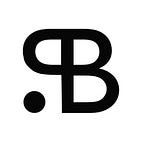Tips for a Successful Whiteboard Design Challenge
The dreaded Whiteboard Challenge in the interview process can seem a daunting task to undertake. Being asked to design a solution for an unexplored problem in 30 minuets to an hour is a nearly impossible ask to accomplish if your’e trying to find the perfect solution. Luckily for us, interviewers want to see your thought process, organization and time management skills. They aren’t looking for a final perfectly completed project.
How do you prepare in advance?
Brainstorm about different kinds of users before the interview starts. Research one or two different groups of people that products are often geared towards. You should have the ability to say “I know millennials (for example) are this age range, their behaviors are _, the overall economic and education level is _. Therefore I can make these _ assumptions.” Having a prepared baseline of information about a few kinds of users will help with quick ideation about your whiteboard challenge user.
If partaking in a whiteboard challenge online over zoom or various other platforms make a template beforehand. Some of these platforms have a whiteboard function imbedded in their structure, I do not recommend relying on this. Trying to learn an unfamiliar design tool and showcase design thinking and skills in a timed environment will only take up time and increase stress. Rather, use a tool you know: sketch, figma, illustrator, etc. and share your screen. By creating a template, or rough outline in a program you feel comfortable with it can showcase a prepared state of mind and reduce any added anxiety.
Before the interview starts create a timeline for yourself and hold yourself accountable to it. 30 minuets goes by pretty quickly, so divide your tasks accordingly into a feasible timeframe.
During the interview be sure to explain your decisions out loud so the interviewer can hear your thought process and write down any choices made and pertinent information gained from the interviewer.
Here is a breakdown for a successful whiteboard challenge - questions to ask and tasks to complete:
1. Ask what is the expected outcome of the challenge itself, and write the outcome down!
- Are you, the interviewer, looking for any behaviors or skills in-particular?
- Am I expected to end with a single solution, or it enough to land on one or two rough ideas?
- Are you, the interviewer, acting in a collaborative role or merely as an observer?
2. Ask questions to specify the challenge
- What is the goal of the design?
- What are the business objectives?
- What are some details and context of the challenge?
- What can I be certain of, what can I assume?
- What is the timeline, device or other constraints?
3. Ask about the users and their context
- What are the different types of users?
- What are some assumptions of their behaviors and problems?
- What are common use cases?
- What are the benefits we should provide?
4. Define the Problem
- What is the company trying to learn / solve?
5. Brainstorm
- Focus on diverging ideas first by exploring the extreme ends of the landscape.
6. Write down the main steps of the story
- Create a scenario / story and list out the user’s steps.
7. Draw a few critical screens
- Draw your story based on what’s listed in step 6.
- Draw only the critical screens in the story.
- Draw clearly and use labels.
8. Summarize the story, talk about alternatives, improvements or other use cases
- What if this is a _ (for a different group of people, in a different location, different device, etc.)
9. Reflect on the assignment
- Did I solve the problem or prompt?
- Am I happy with where I ended up or dissatisfied?
- What would I change in my process or approach for next time?
- What surprised me about my approach and what felt normal?
*prompt generator designercize is a great resource for practicing challenges.
